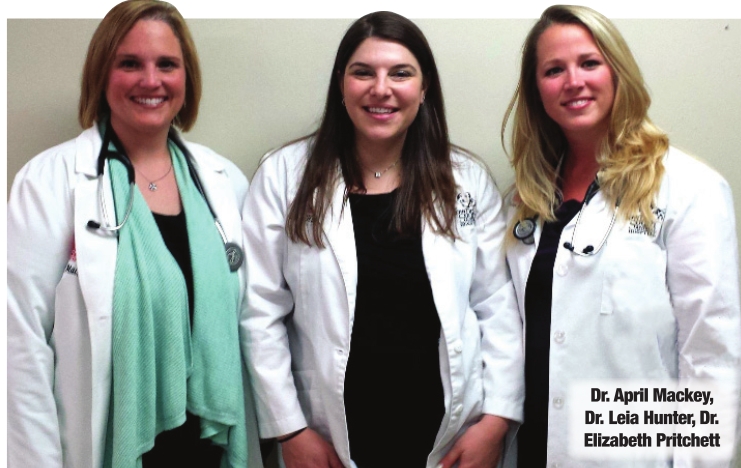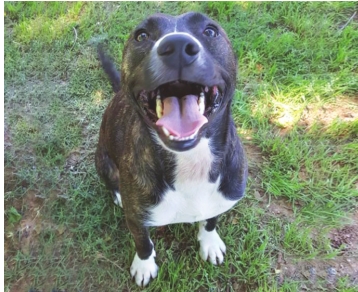PET DENTAL HEALTH MONTH

Dogs and cats require good oral hygiene, too
Good oral hygiene isn’t reserved for only those walking with two legs – pets big and small deserve the benefits of proper dental health as well! Much like with their owners, good oral health has a significant impact on overall wellness and quality of life. The veterinarians at Towne South Animal Hospital (TSAH) in Shreveport know this all to be true, and handle their patients’ dental health with great care.
“Oral health is a very important issue in dogs, cats and rodents,” said April Mackey, DVM. “Dental disease often goes unnoticed or ignored and can lead to serious health issues such as pain, decreased appetite/weight loss, infection and even systemic health problems [such as heart or liver disease].”
Mackey, alongside Leia Hunter, DVM, and Elizabeth Pritchett, DVM, help their patients’ owners be proactive and informed when it comes to caring for their pets’ pearly whites.
“Important factors in keeping your pet in good oral health [include] feeding a good quality dry kibble daily,” said Mackey. “Canned food does not create the abrasive action required to help keep the teeth clean.”
While some steps differ in how humans care for their teeth and how they care for their pets’, some things are the same and equally as necessary.
“Tooth
brushing is vital!” said Mackey. “It is very important to start
brushing your pet’s teeth even as a puppy to get them accustomed the
feeling. However, your pets are never too old to begin a good oral care
routine. We offer dog toothbrushes and toothpaste specifically
formulated for your dog.”
While some pets may be compliant and allow for their owners to brush their teeth, other steps in dental care can be a little more enjoyable but have just as many benefits.
“Dental chews can also help reduce tartar build up,” said Mackey. “Our favorite dental chew is the Oravet chew. These chews are different from any other chew because they have an enzyme in them that actually reduces tartar that is already on your pet’s teeth. We have seen good results with these, and most of our staff even uses them for their own pets.TSAH works to ensure the utmost quality care for their patients’ dental care, and that includes one of the most crucial aspects in which their team provides comprehensive service.
“The most important factor to maintain good oral health is routine dental cleanings,” Mackey continued. “Animals are placed under general anesthesia (at TSAH) for this procedure. This is the best way to safely and thoroughly clean your animal’s teeth. We use a water-powered ultrasonic scaling machine – just like at your dentist! We also take fullmouth X-rays to make sure all the roots are healthy, and thoroughly polish the teeth to help smooth any abrasions on the surface.”
One option to consider, routine dental cleanings is a sealant called Sanos. This option is recommended for each pet receiving a dental cleaning as it creates a layer of protection on your pet’s teeth. It’s applied at the end of the dental cleaning and helps reduce tartar build up for the next six months.
While dogs and cats are more common in receiving these services, veterinarians don’t limit their practice there, and often includes other animals and pets.
“We are also equipped to do dental work on exotic pets,” said Mackey. “Dental care in exotic pets is important and often ignored. Rabbits and small rodents in particular need routine care of their teeth since their teeth continue to grow throughout their entire life. Once an owner notices a problem with their exotic pet’s teeth, it most likely is already serious. A yearly sedated dental exam is best for these pets to find and correct issues before they become more severe.”
Complicated dental procedures with multiple extractions, if needed, will keep your pet’s mouth clean and comfortable. Dental health is key to a good-quality, long, healthy life.
– Katie Ho

